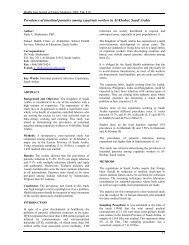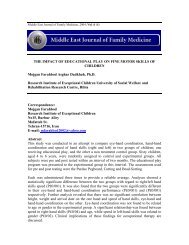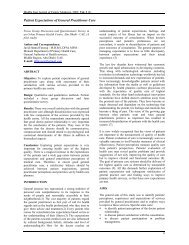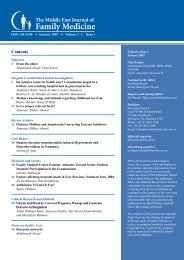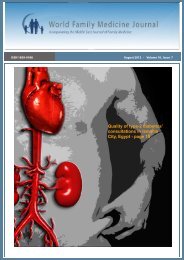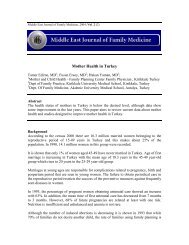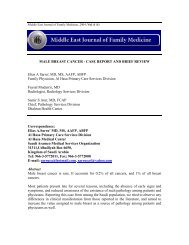Erectile Dysfunction: A guide to diagnosis and management
Erectile Dysfunction: A guide to diagnosis and management
Erectile Dysfunction: A guide to diagnosis and management
You also want an ePaper? Increase the reach of your titles
YUMPU automatically turns print PDFs into web optimized ePapers that Google loves.
Severe depression like any severe chronic illness will be associated with ED, in part<br />
because of general malaise, poor circulation <strong>and</strong> associated reduced desire exacerbated by<br />
antidepressants. Performance anxiety <strong>and</strong> other anxiety related circumstances are also<br />
worthy of discussion, as they are not uncommon. While these may contribute <strong>to</strong> the<br />
organically based ED of a middle aged man, they are the usual cause in men under the<br />
age of 40 years.<br />
More severe psychiatric disorders, such as entrenched body image problems may require<br />
psychiatric referral.<br />
Identifying the problem<br />
<strong>Erectile</strong> dysfunction is generally under diagnosed <strong>and</strong> consequently under treated, with<br />
only approximately 10% of men with ED having discussed their problem with their<br />
doc<strong>to</strong>r.(5) Studies in Europe <strong>and</strong><br />
Australia indicate that 75-88% of men with ED are not treated.(6) Many affected men<br />
visit their general practitioners for <strong>management</strong> of other morbidities <strong>and</strong> others may<br />
present for a check up, hoping <strong>to</strong> be asked about ED. Some suggestions for 'breaking the<br />
ice' in inquiring about a patient's sexual life are:<br />
• creating a friendly, nonthreatening atmosphere<br />
(this may be difficult because of pressure of the<br />
waiting room), <strong>and</strong><br />
• do not assume sexual orientation or sexual<br />
preference or indeed believe the patient is, or<br />
wishes <strong>to</strong> be, sexually active.<br />
If a patient presents for a general check up, it is essential <strong>to</strong> include a sexual his<strong>to</strong>ry as<br />
part of assessing sexually transmitted infection risk as well as sexual dysfunction. A<br />
useful approach is:<br />
'Do you suffer from headaches, dizziness, chest pain, reflux, shortness of breath, bowel<br />
symp<strong>to</strong>ms, urinary symp<strong>to</strong>ms'<br />
Then: 'Are you sexually active'<br />
If the answer is 'No': 'Is this of any concern <strong>to</strong> you'<br />
If the answer is 'Yes': 'Do you have any concerns about this'<br />
An affirmative reply is permission <strong>to</strong> discuss. If the reply is 'No' when in fact he is<br />
concerned, there remains an invitation for him <strong>to</strong> return. A patient coming in for a repeat<br />
prescription provides an opportunity <strong>to</strong> discuss possible side effects: 'It is not uncommon<br />
that treatment may also cause difficulty with sexual activity; have you any concerns<br />
about this'<br />
Opportunities are endless as <strong>to</strong> how the GP may ask about sexual concerns in a<br />
nonthreatening way. Patients are often very relieved <strong>and</strong>, not infrequently, the<br />
atmosphere of trust reaches a new level. The patient may return <strong>to</strong> discuss other related<br />
<strong>and</strong> non-related personal concerns in his life.



